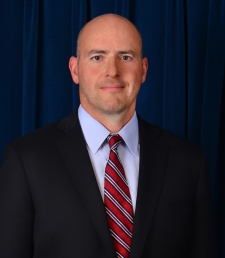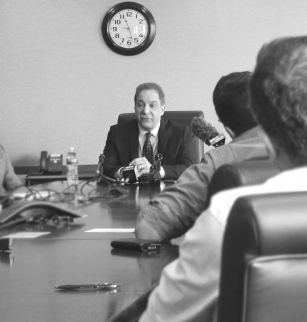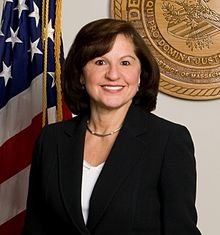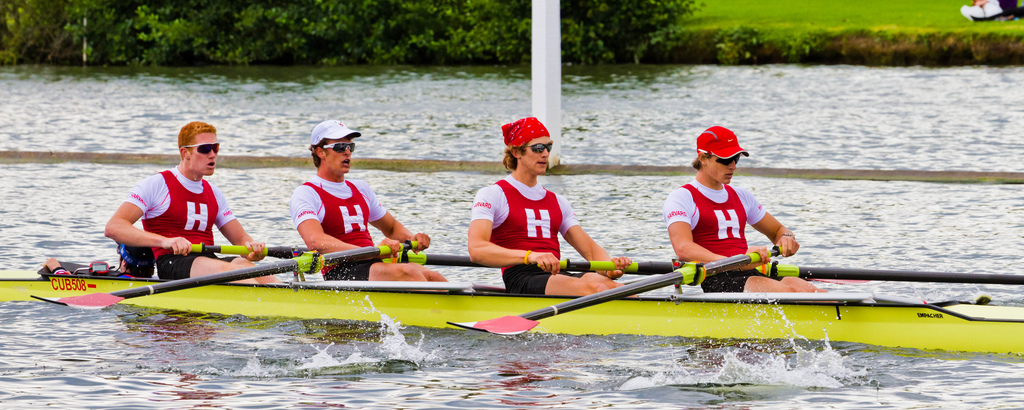Which seems more likely, that there was nothing at Harvard for the “Varsity Blues” investigators to find OR that the Harvard alums who are known to dominate the U.S. attorney’s office in Boston chose not to look there?
After all, the same list of schools has been repeated ad nauseam on the airwaves ever since news of the scandal broke: USC, UCLA, Yale, Wake Forest, Stanford, Georgetown, The University of San Diego, and the University of Texas at Austin. However, Harvard, which is arguably the most competitive and hardest university in the nation to get into, has been conspicuously absent without so much as an obviously-forged note bearing a lame excuse as to why.
When pondering this odd phenomenon, it might be worth remembering that in 2017-2018 a pair of stories surfaced about potential favoritism sparing Harvard from the DOJ’s wrath.
First, over at WND this reporter picked up on an ongoing drama where an anesthesiologist named Dr. Lisa Wollman at Harvard’s largest teaching hospital, Massachusetts General, blew the whistle on alleged “double booking” by orthopedic surgeons, who are said to have scheduled multiple surgeries at overlapping times and to have left trainees to close surgical incisions, unbeknownst to patients, while billing the federal Medicare and Medicaid programs full price for both operations. The scandal reportedly affected former Red Sox pitcher Bobby Jenks, who had surgery at Mass. General prior to ending his major-league career. The Boston U.S. attorney’s office had about 2 years to join Wollman’s suit on behalf of federal taxpayers, but multiple heads of that office, each with strong ties to Harvard, declined to do so.
Later, a newly-hired member of the Trump DOJ apparently uncovered that federal prosecutors had been leery of pressing a civil rights suit against Harvard regarding alleged discrimination against Asian applicants. That case was brought by private plaintiffs, Students For Fair Admissions, Inc., and a ruling by U.S. District Judge Allison D. Burroughs, rather than a jury, is expected within the next few months. There is no clear consensus on who is expected to prevail, but both sides are expected to appeal.
And then there’s Justina Pelletier. She and her family have sued Harvard’s primary pediatric research and teaching facility, Boston Children’s Hospital, for medical malpractice and civil rights violations (which many people consider to have been torture). On top of the Pelletier family’s claims under the U.S. Constitution, an unspecified but large amount of federal Medicaid money was reportedly involved, yet once again, the DOJ has declined to take a Harvard entity to federal court.
Thus, though it’s entirely possible that Harvard was uninvolved in this latest scandal, this apparent pattern of behavior in the DOJ nonetheless raises critical questions regarding the “Varsity Blues” investigation and why Harvard - whose school color is crimson red by the way - hasn’t been named.
Like, did “Varsity Blues” investigators look into America’s “most elite” university? And, as the other schools which have thus far been named reel from the fallout, was reputation-obsessed Harvard given special treatment and spared from the headlines? Further, are cheaters safe from law enforcement so long as they cheat their family’s way into Harvard?

Andrew Lelling is the current U.S. attorney in Massachusetts (U.S. DOJ, Public Domain)
These are good questions for Andrew Lelling, who is the current top federal prosecutor in Boston. Now, Lelling went to Binghamton University and the University of Pennsylvania. However, the rest of his office is still dominated by Harvard grads and Lelling has only held the top post for about 15 months. So, it’s likely that the “Varsity Blues” investigation actually began and took shape under his predecessors.

William Weinreb was the acting U.S. attorney in Massachusetts until December 2017. (U.S. DOJ, Public Domain)
For instance, in the year or so before Lelling took over, then-acting-U.S.-Attorney William Weinreb was in charge of federal prosecutors in the Bay State, which on top of Harvard has more colleges and university students per capita (7.32%) than any other large metropolitan city (one million+ people) in the country except Los Angeles, which leads with an additional 0.02%. And it would be hard to find more of a “Harvard man” than Weinreb, who graduated from Harvard Law School.
In fact, Weinreb was the editor and treasurer of the Harvard Law Review, as well as college chums with soon-to-be-former-Deputy-AG Rod Rosenstein during their glory days in Cambridge, MA. Then Weinreb cut a $1,000 check and maxed out his personal donation limit to the political campaigns of his fellow Harvard folks, Elizabeth Warren and Barack Obama, respectively, before his predecessor, Carmen Ortiz, officially handed him the reigns in January 2017.

Former U.S. Attorney Carmen Ortiz, who reportedly tried to get a job at Harvard after leaving office. (U.S. DOJ, Public Domain)
During her time in power, former U.S. Attorney Carmen Ortiz was a lightning rod of controversy and criticism, but not for going after Harvard. She had been recommended for the top law enforcement job in Boston by Ted Kennedy - of the Harvard Kennedy School Kennedys.
Ortiz also mentored under longtime Harvard Law professor Philip Heymann, whose son, former Harvard lecturer Stephen Heymann, occupied the sought-after likely-stepping-stone post of cybercrime division chief under her.
Perhaps it’s no surprise then, that after Ortiz left office, Harvard was one of the first places where she reportedly explored career opportunities. However, in what may have been a well-deserved cosmic irony, the Ivy League university didn’t hire her. It appears that despite her significant efforts, Ortiz had still ruffled too many sensitive feathers on campus and like so many before her, she apparently had to settle for her safety school, Boston College, before taking a job at a small local law firm.
The FreeMartyG team inquired with a top Justice Department official in Washington DC, asking whether the DOJ’s leadership had any concerns that Harvard might have experienced preferential treatment during the “Varsity Blues” investigation, not all that unlike some of the students who now find their admission to other top universities in question. U.S. Department of Justice Spokesperson Kelly Laco declined to comment.
Anyone with further information is encouraged to contact the FreeMartyG team on Facebook or Twitter.
The author, Marty Gottesfeld, is an Obama-era political prisoner. To learn more about his case or donate to support him, please go to FreeMartyG.com.
Update: On Friday April 5th, the story broke that Harvard too was embroiled in a college admissions scandal.

 Donate Now
Donate Now
 Follow
Follow 
